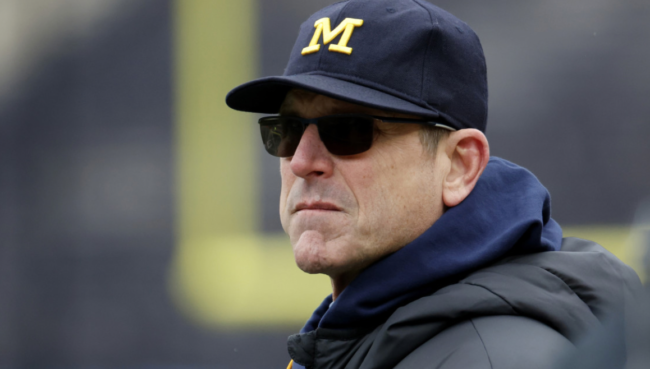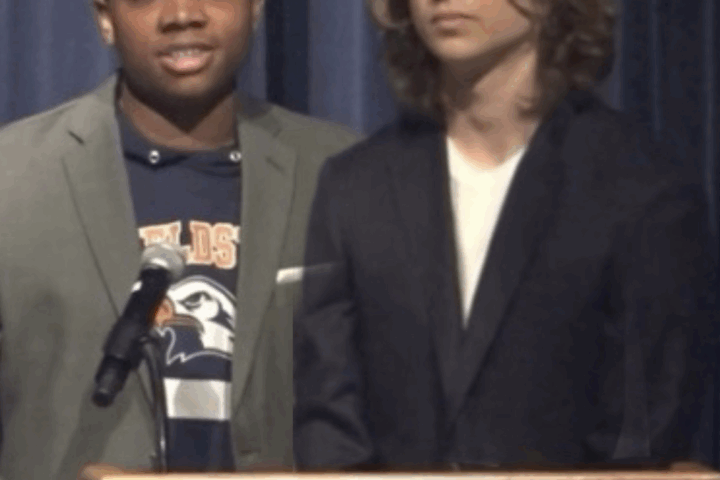The Michigan Wolverines, one of the biggest and most successful college football teams, are facing recent allegations of sign-stealing. Head coach Jim Harbaugh has consequently been banned by their subdivision, the Big Ten, from the sidelines of future games in the 2023 regular season.
What is Sign-Stealing?
In the NFL (National Football League), coaches can communicate with their quarterbacks via a headset placed in the player’s helmet. This is how the team knows which plays to run. At the college level, they do not have this technology, so hand signs and graphics are traditionally used to signal plays to the quarterback. Thus, if a team can understand what plays correspond to which signals, they can better prepare for how they will defend.
The NCAA and Big Ten have set various rules on what is legal and illegal on how teams can try to decode these signals. Teams are allowed to watch tapes of opponents’ games and they can hire people to analyze “coaches film”, a separate recording that tracks all of the on-field players. However, the league has banned all in-person scouting trying to crack these codes. In the 1990s, the NCAA declared that schools may not send representatives of their teams to the games of future opponents, and this is the rule Michigan is accused of skirting.
Fieldston’s athletic director and football coach Gus Ornstein shared his thoughts on how illegal sign-stealing gives a dramatic advantage. He explains, “The contrast in numbers is crazy. I don’t know if you can attribute all of that to this, but it is pretty interesting to see. [Michigan is] 26-1 since they started using Connor Stalions, their points per game are up almost a touchdown, and their points given up are down.”
Connor Stalions, a Michigan staff member, is accused of this alleged sign stealing. Stalions is being sued for buying tickets to the games of Michigan’s upcoming opponents and distributing these tickets to his known associates. He would then receive footage recorded on an iPhone of the signs that were being delivered to players. Stalions has also been accused of disguising himself and going to personally watch the games of upcoming opponents. In one photo, he is shown disguised as a staff member of the Central Michigan football team.
Stalions has responded to these charges by accusing whoever sued him of either being disrespectful towards veterans or being a “Michigan State fan [who] knows I am a Michigan football coach and wants to draw my attention away” (Source: The New Yorker).
Harbaugh claims that he knew nothing of the alleged sign-stealing but has still been banned by the Big Ten from the sidelines for all remaining regular season games. Ornstein disagrees with that decision, adding, “I don’t know if the suspension of Harbaugh right now in the middle of the season is the answer. I’m curious what would happen beyond this.”
Tim Smith, a Michigan athletics donor, has also recently been accused of helping Stalions sneak into the Central Michigan staff sideline. Yahoo Sports recently presented evidence of Stalions being in contact with someone named “Uncle T”, but Smith denies being said person. Chris Partridge, the Michigan linebackers coach, has also recently been fired due to hiding evidence of sign-stealing despite not knowing of the scandal before.
Unfortunately for the Michigan Football Team, these breaches in NCAA and Big Ten rules might prove devastating to the number three-ranked team in the nation. If the NCAA finds Harbaugh and Michigan guilty of illegally decoding signs there will most likely be sanctions on the team, “including the vacation of wins in which the scheme was used” (Source: Washington Post). Still, these consequences are not necessarily just or proportional. Ornstein pushes back, arguing, “Something about giving up wins never feels right to me because I think that’s sort of punishing the kids on the team who didn’t have control over this.”
Despite all of these potential consequences, Ornstein reminds us that hope is not at all lost for Michigan. “I think people are just thrilled with the success of the team. If they continue to win and they win the national championship, I don’t think there are going to be too many people in Ann Arbor who are unhappy.”






